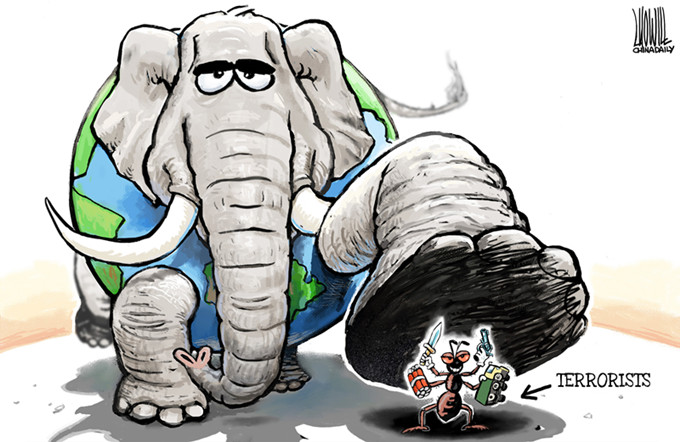Progress in China's human rights
Public cultural services have been made more equitable. The state has provided extensive public cultural services to special groups, and made greater efforts to guarantee the cultural rights of migrant workers, senior citizens, minors, low-income groups, and disabled persons. The state has implemented the Promotion Program for Children's Songs, and held China Children's Choir Festival and China Choir Festival for the Elderly, among other activities. In May 2010 the National Library of China formally opened its National Children's Library (National Children's Digital Library) to the public. In 2012 China Digital Library for Visually Impaired and China Digital Library for People with Disabilities provided barrier-free books, lectures, music and other cultural services to over a million disabled persons. The state has implemented the program to build public electronic reading rooms, and has completed the building of 28,612 such reading rooms in rural townships and urban communities to provide services to minors, senior citizens, migrant workers and other groups. In 2011, state departments concerned jointly issued the Opinions on Further Strengthening Cultural Services for Migrant Workers, which set the guidelines for migrant workers' cultural services relying mainly on the public cultural service system, and boosted the forming of a mechanism where the government assumes the leading role, enterprises contribute by joint development, and the whole society takes part. From 2010, the Ministry of Culture has been actively promoting trips by volunteers to bring cultural services to border areas. Over the past three years, more than 20 provinces (municipalities) and public institutions in China's more developed areas have organized 50 volunteers' groups comprising over 2,000 cultural volunteers to stage 450 art performances in 12 border provinces and autonomous regions inhabited by ethnic minorities in compact communities and the Xinjiang Production and Construction Corps, provide more than 2,000 hours of professional training and hold a total of 600 days of cultural exhibitions, benefiting several hundred thousand people. Efforts have also been made to promote the adding of subtitles and sign language to TV programs and provide barrier-free live broadcasting service online with words and videos of major events, benefiting 70,000 people with hearing impairment. In 2012, the Ministry of Culture and the Office of Cultural and Ethical Promotion of the CPC Central Committee jointly released the Opinions on Carrying out Extensive Community-based Voluntary Cultural Services, which proposed to extensively carry out voluntary cultural services on the basis of public cultural facilities, cultural projects benefiting the people, major festivals and memorial days, and pair-up assistance between more developed areas and border areas.
The citizens' rights to the freedom of religious belief are protected. China upholds the policy of freedom of religious belief, and ensures its citizens' freedom of religious belief as an important part of their human rights. The Chinese government exercises administration over religious affairs by law, and protects the legitimate rights and interests of religious groups. It strives to promote religious harmony, and gives play to the active roles of religious personages and common believers in promoting economic and social development. Based on the Regulations on Religious Affairs, the State Administration of Religious Affairs has enacted nine supporting regulations. The Chinese government proactively promotes the administration by law in the religious sector and strives to regulate its administrative power in this regard. In 2012 China canceled administrative approval on three items related to religious affairs and made adjustment to three other issues, and amended the Enforcement Regulations on Certain Issues Requiring Administrative Approval Regarding Religious Affairs. The state continues to help national religious organizations and religious institutions improve their working and teaching conditions. It properly handles social security insurance for religious staff and ensures that those entitled to social security get covered. The state handles, in accordance with the law, cases which hurt the feelings of religious believers, properly deals with the demolition of housing belonging to religious organizations and houses for holding religious activities in urban construction, and attaches importance to the protection of religious relics and distinctive religious cultural heritage. Currently, China has approximately 360,000 religious staff and 140,000 registered venues for religious activities that are open to the public, basically satisfying the needs of religious believers. There are in total 5,500 religious organizations carrying out their respective activities in an orderly manner. The state has approved the restoration and building of 97 religious institutions, and a relatively complete institution-based religious education system has been put in place. China supports the production and circulation of religious classics, periodicals and other publications according to law. By 2012, more than 100 million copies of the Bible had been printed in China, making it among the few countries in the world with the largest print-run of the Bible. The Chinese government supports exchanges in the field of religion: China hosted the International Daoism Forum in Hunan in October 2011 and the Third World Buddhism Forum in Hong Kong in April 2012.
























